
Find Relief for Your Pain and Live Abundantly
A hernia happens when part of your stomach or intestine pushes through a weak spot in your belly or chest muscles. Hernias are common, and there are different ways to treat them. Some hernias may need surgery, but others can be watched or managed with simple lifestyle changes and medications. At AdventHealth, our team will help find the best treatment for you and make sure you feel safe and comfortable every step of the way.
Preventing and Treating Hernias
People used to think hernias only happen from lifting heavy objects. But hernias can happen when the belly muscles get weak — from things like lifting, coughing, using the bathroom or even sneezing. We’re here to help you learn about hernias and get you feeling better. Our team will take good care of you and give you the treatment you need.
Different types of hernias — like hiatal, inguinal or umbilical hernias — occur in different areas of the body. Your symptoms may vary depending on the location and size of your hernia and can include:
- Blood in your stool
- Constipation
- Discomfort when lifting or bending over
- Heartburn
- Heavy feeling in your abdomen
- Swelling or bulge under the skin in your abdomen or groin
- Upper abdominal pain
Hernias and their symptoms cause distress, especially at first, but learning more about your condition can help you approach your hernia diagnosis with confidence.
At AdventHealth, we know that answers bring relief. That’s why our care team takes the time to thoroughly evaluate your symptoms, listen to your concerns and explain every step of your diagnosis.
Diagnosing a hernia often begins with a physical exam, where your provider may check for a bulge or swelling in your abdomen or groin — especially when you’re standing or straining. Depending on the type and location of your hernia, additional imaging tests like an ultrasound, CT scan or MRI may be recommended to get a clearer picture.
At AdventHealth our dedicated team of hernia care experts takes a whole-person approach to healing. From your first visit, we focus on listening to you and tailoring a care plan that prioritizes your comfort, health and well-being.
Sometimes, the best care means no surgery at all. If monitoring or lifestyle adjustments are right for you, we’ll guide you every step of the way.
Conditions We Treat
From inguinal and incisional hernias to umbilical and complex hernias, we treat your condition with the care and compassion you deserve to help you get back to feeling whole. Read more about the types of hernias we treat to familiarize yourself as you start your healing journey.
-
Epigastric Hernia
These are hernias located between the belly button or navel and the sternum, and at the side of the abdominal wall below the navel, respectively.
-
Femoral Hernia
Mainly affecting older women, this type of hernia happens when fatty tissue or intestine pushes through the muscle wall into the groin at the top of the inner thigh.
-
Hiatal Hernia
The muscle wall involved in this type of hernia is the diaphragm. An organ, usually part of the stomach, pushes through the diaphragm wall and up into the chest cavity.
-
Incisional Hernia
An incisional hernia can be found anywhere in the abdominal cavity and is caused by a previous surgery that weakened the muscle wall.
-
Inguinal Hernia
An inguinal hernia occurs in the groin area. Part of the intestine or other abdominal contents protrude through a weak area of the abdominal wall causing a lump or bulge.
-
Umbilical Hernia
This type of hernia occurs when fatty tissue or intestine protrudes through the abdominal wall near the navel.
-
Complex Hernia
A complex hernia is a hernia that requires specialized expertise for proper treatment. At the AdventHealth Advanced Hernia Center, we are highly experienced in managing even the most difficult hernia cases.
The Different Types of Hernias
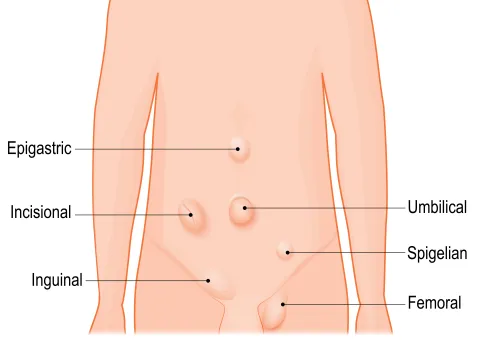
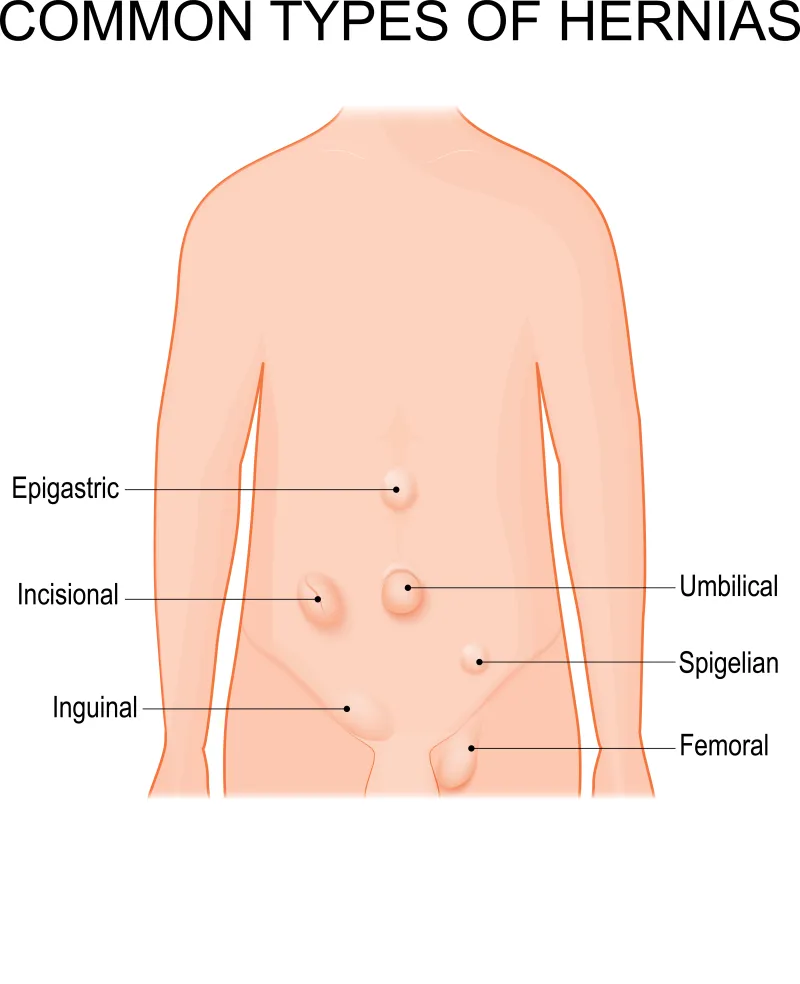
Common Types of Hernias
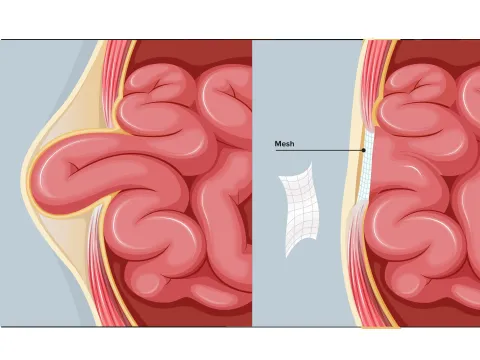
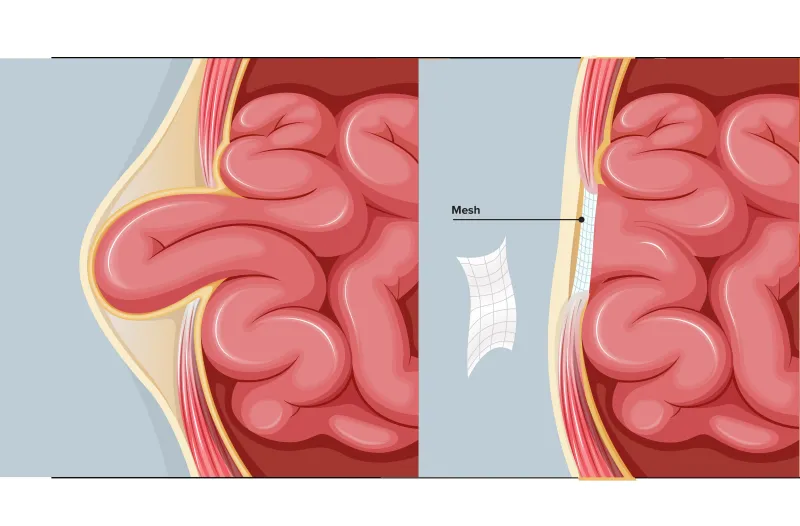
Absorbable Mesh
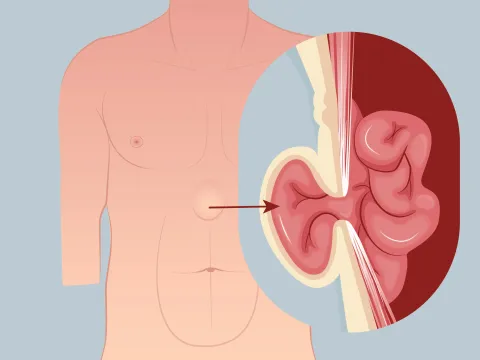
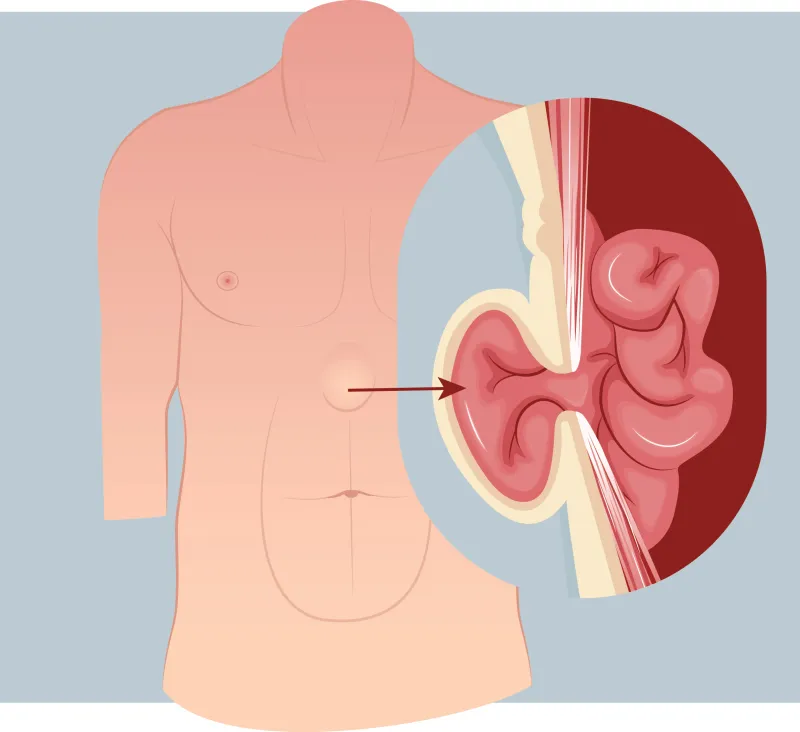
Epigastric Hernia
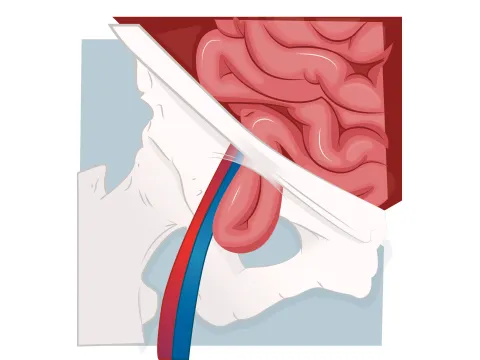
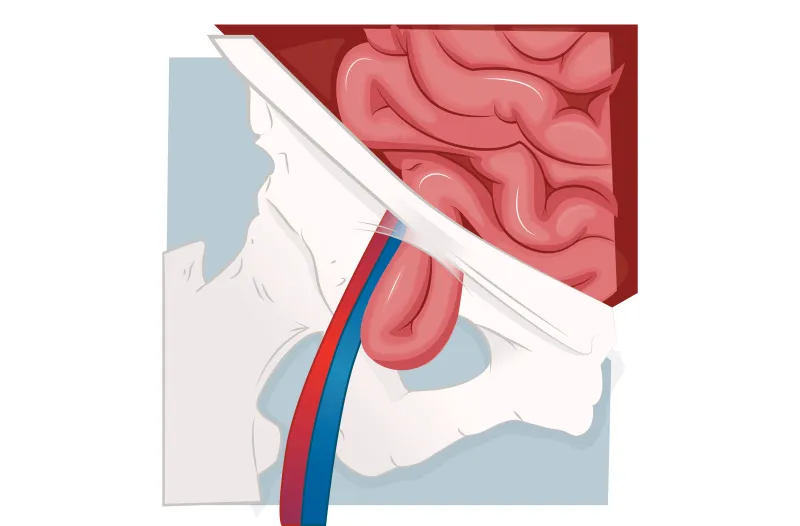
Femoral Hernia
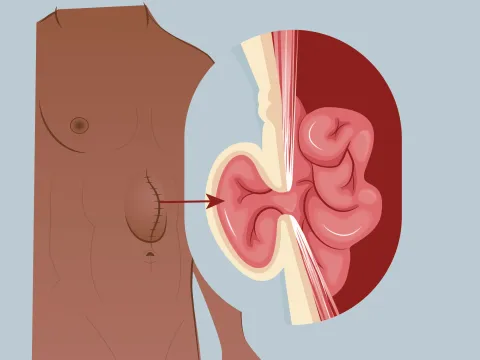
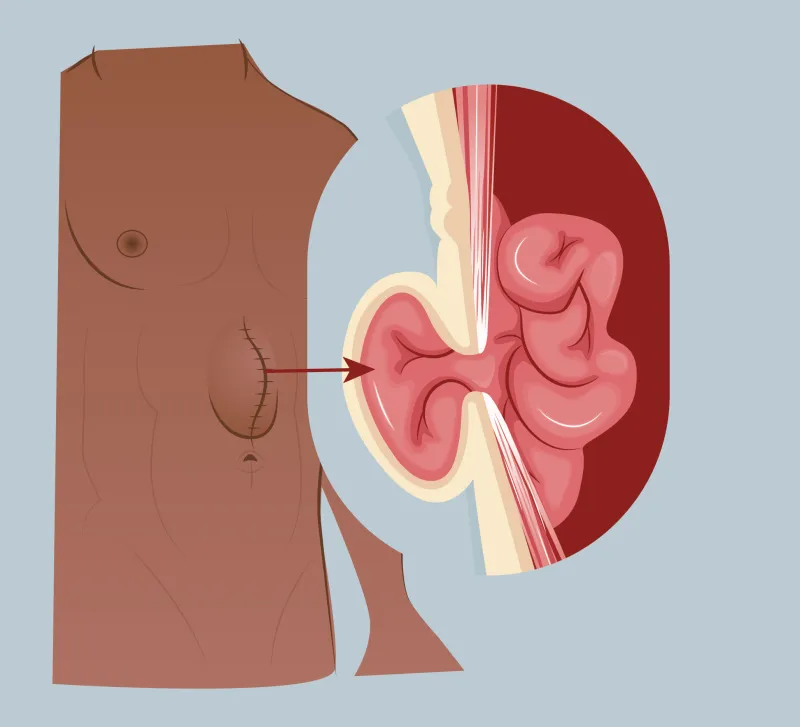
Incisional Hernia
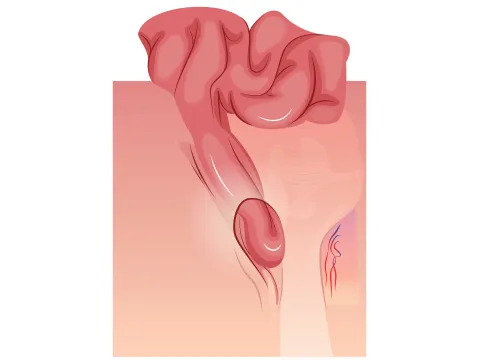
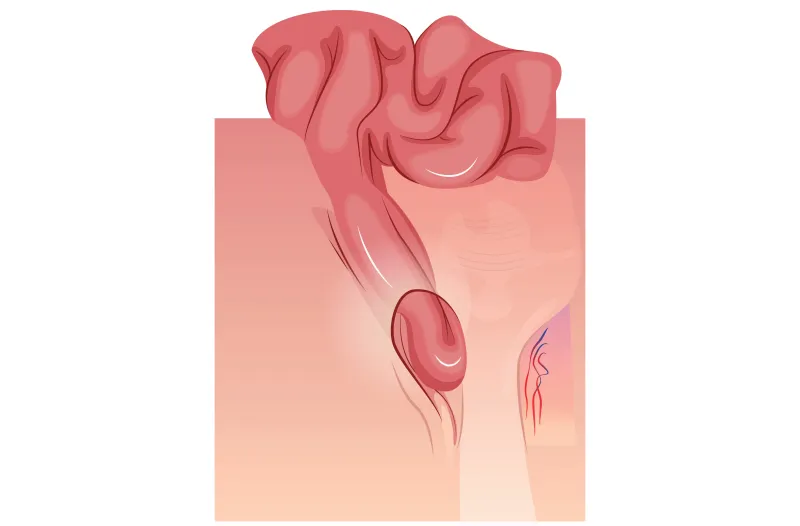
Inguinal Hernia
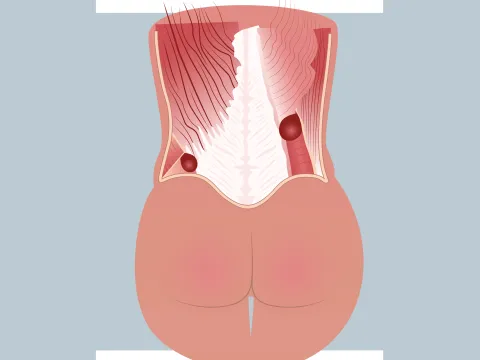
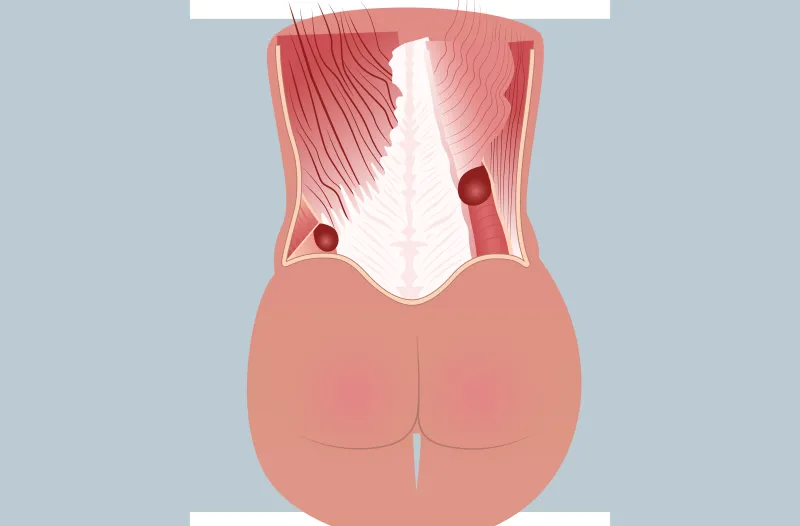
Lumbar Hernia
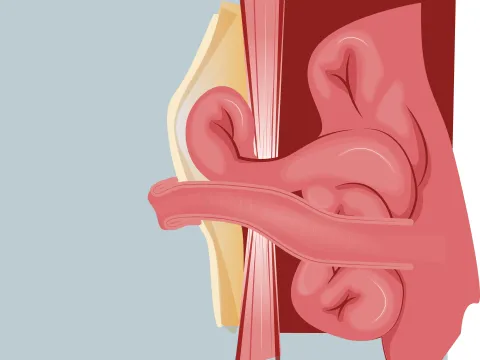
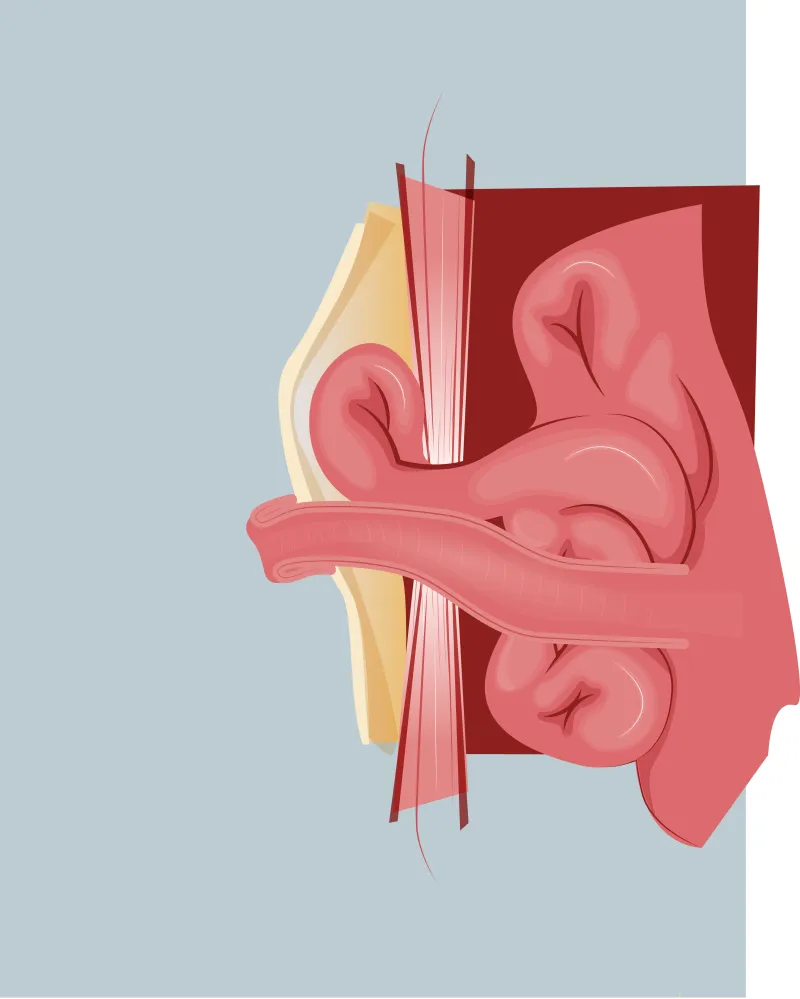
Parastomal Hernia
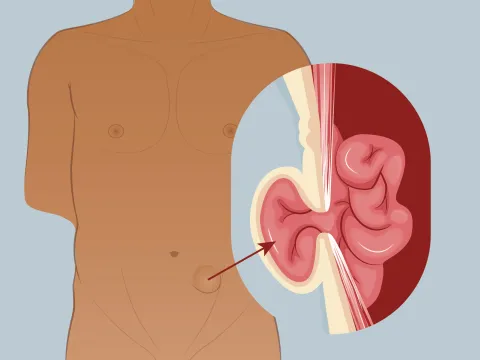
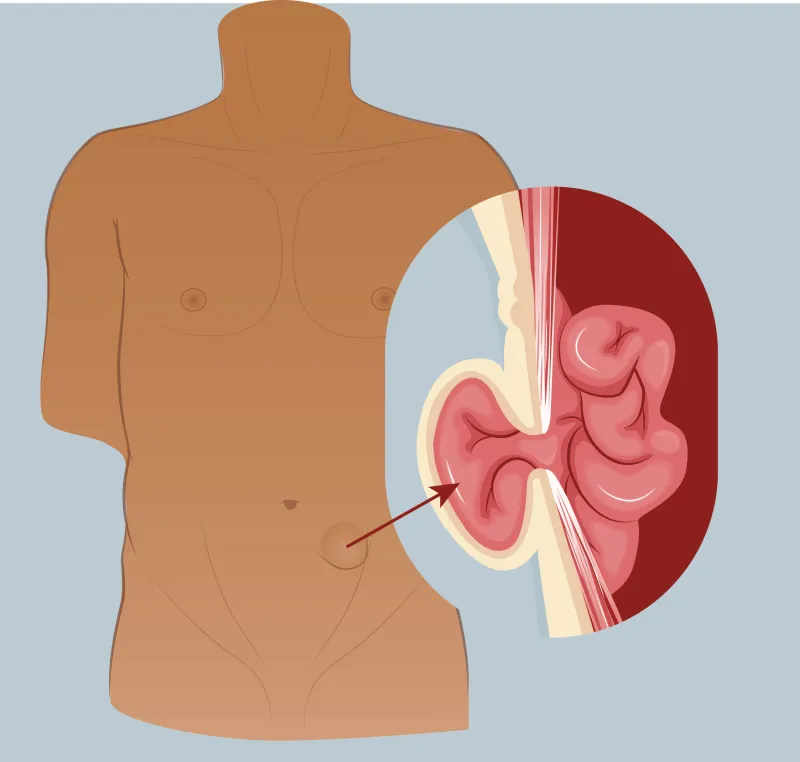
Spigelian Hernia
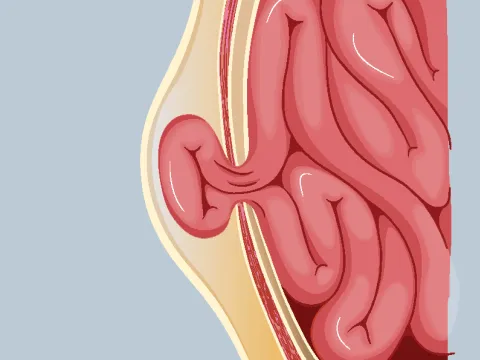
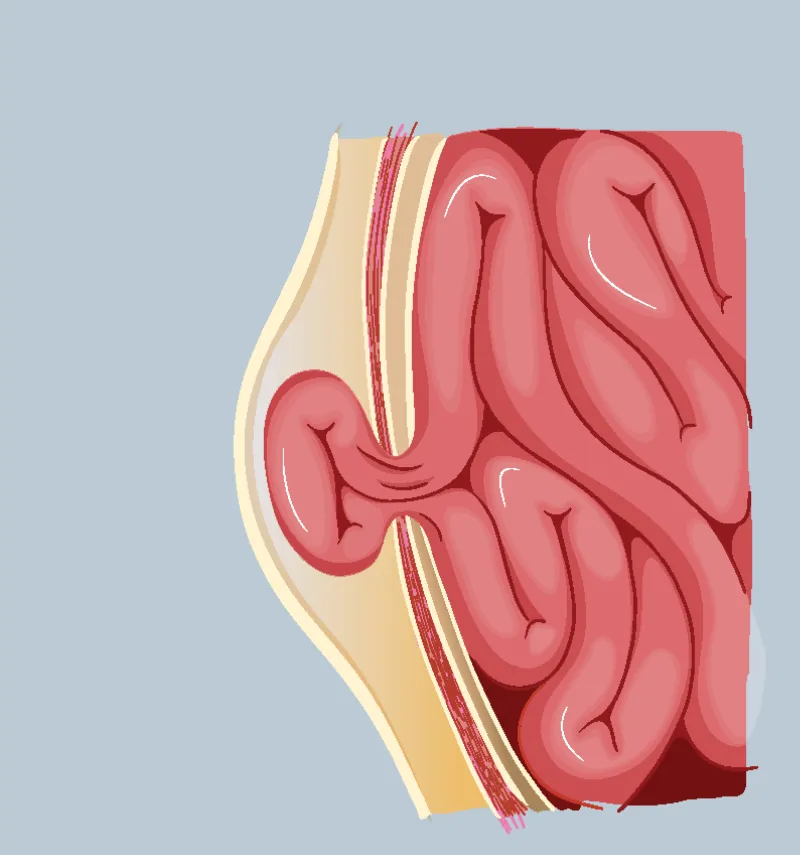
Strangulated Hernia
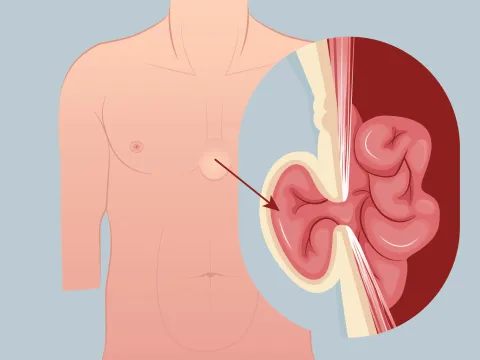
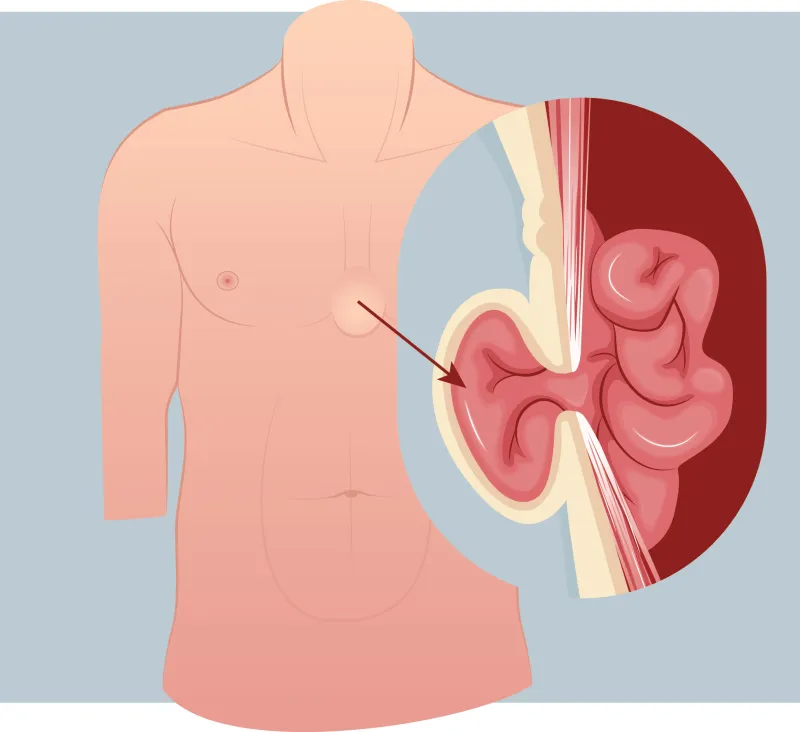
Subxiphoid Hernia
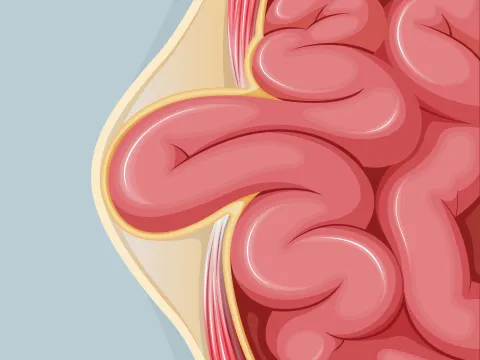
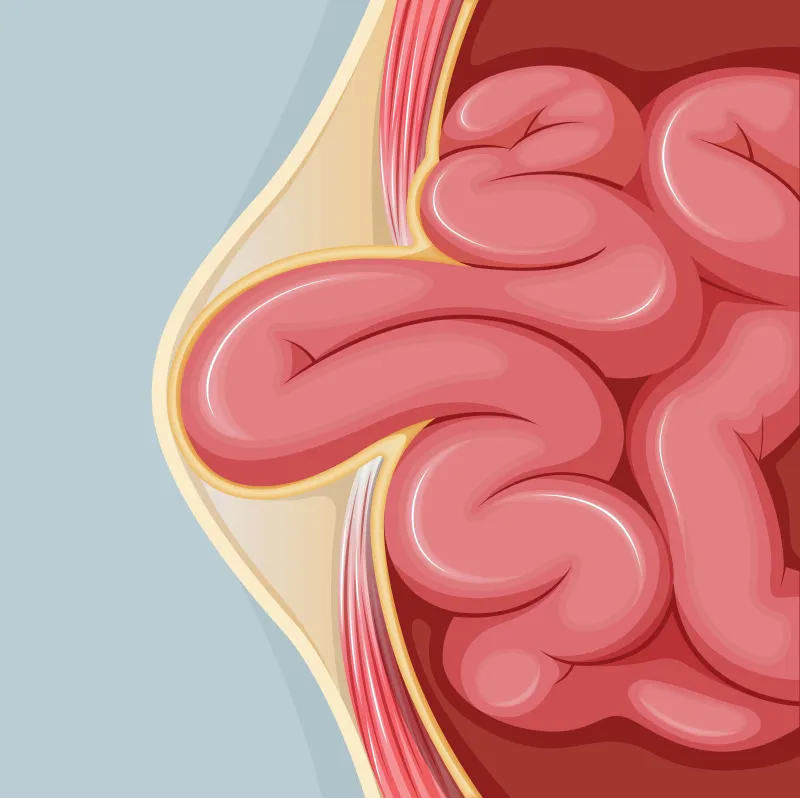
Umbilical Hernia
Hear From Our Esteemed Medical Team
- Chad Richards' Story: Back in the Game
- When Should You Seek Care for a Hernia?
- Hernia Surgery Options
Chad Richards shares his care experience at AdventHealth Tampa with Dr. Jared Funston. Following successful hernia surgery, Chad is now able to get back to doing what he loves most: competing.
Back in the Game!
Dr. Luv Hajirawala, a general surgeon at AdventHealth Carrollwood, discusses hernias and proper treatment options.
When Should You Seek Care for A Hernia?
Dr. Jared Funston, a general surgeon at AdventHealth Tampa, talks about the surgery options for a hernia, including robotic surgery and its benefits.
Hernia Surgery

Meet Your Dedicated Experts
Our specialists are passionate about providing collaborative care that addresses your unique needs and goals while ensuring you feel informed and supported every step of the way. Learn more about our team and their areas of expertise.
Find Comfort in Award-Winning Hernia Surgical Care
Know you’re safe in the hands of our world-class physicians who are experts in hernia and minimally invasive surgery, giving you the best chance for less pain, a faster recovery and more comfort — in body, mind and spirit. Learn more about our award-winning care.
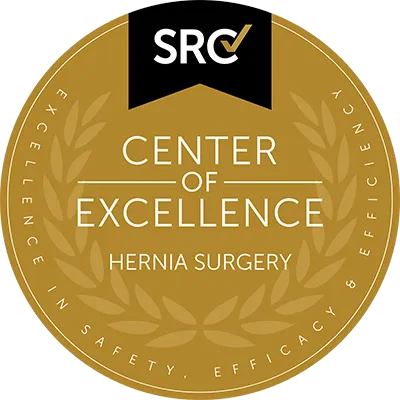
Surgical Review Corporation | Center of Excellence in Hernia Surgery
AdventHealth Ocala
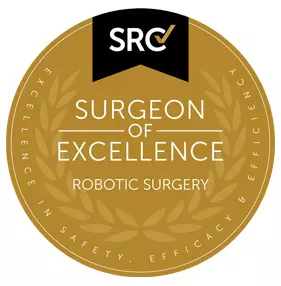
Surgical Review Corporation | Center of Excellence in Robotic Surgery
AdventHealth Ocala
AdventHealth Carrollwood
AdventHealth Sebring
AdventHealth Port Charlotte
Let Us Help You Feel Whole Again
Whether you’re experiencing new symptoms or want a second opinion on a diagnosis, our dedicated general surgery experts are here to help you find answers and a path forward. Request an appointment today to take charge of your health and get the personal support you need.
